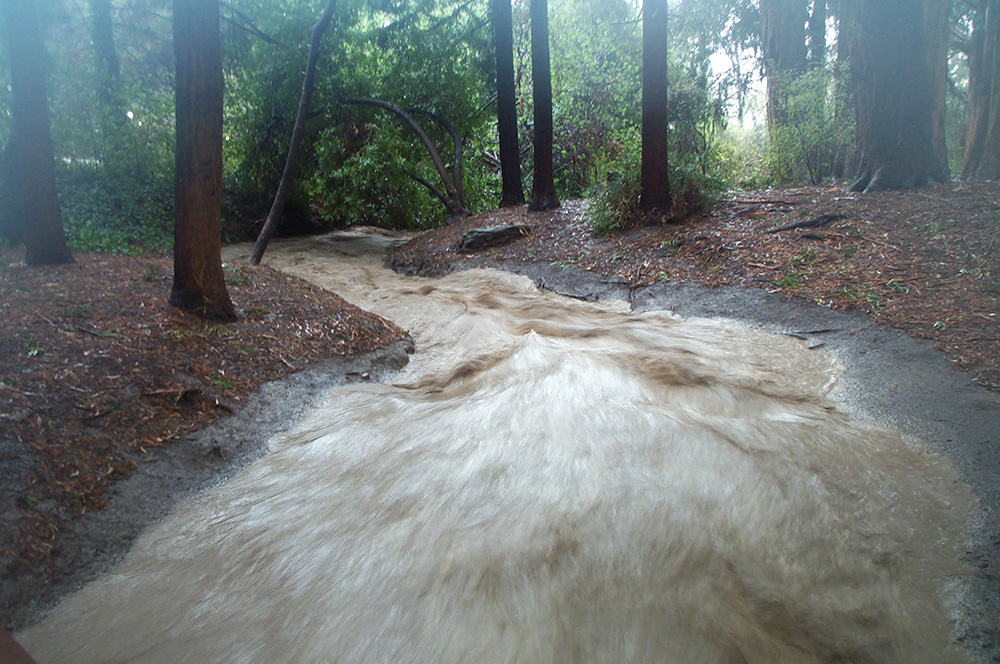This cluster explores the essential role of water through a creative lens. Students will delve into the scientific aspects of oceans, including their ecological and global significance, while also engaging in art and media projects to challenge and reshape popular misconceptions about water resources in California. This cluster combines oceanography, art, and writing to encourage creative thinking and problem-solving around environmental issues related to water. Students will also benefit from the fulfillment of the breadth requirements for Biological Science, Physical Science, and Arts & Literature, while also fulfilling either the first OR the second half of Reading and Composition.
Regarding R&C course placement into either College Writing R4A OR College Writing R4B:
Students participating in this cluster will be placed in the appropriate course based on scores and other relevant criteria. To help determine your course level, (1) be sure you have satisfied Entry Level Writing with a qualifying test score (such as an AP English exam), Berkeley Writing Assessment score, or completion of COLWRIT R1A in fall 2025; and (2) review the Reading and Composition Requirement website for all of the options that satisfy Reading and Composition. In the enrollment form, you will be asked for more information about your Reading and Composition (R&C) writing level by selecting from a list, to the best of your ability. We understand that you may not have your AP English exam score data at this time.
Course Descriptions
Click on the courses below for more detail.
EPS 82: Oceans (3 Units)
Class # 24208: This course offers multidisciplinary approach to begin answering the question “Why are oceans important to us?” Upon a physical, chemical, and geologic base, we introduce the alien world of sea life, the importance of the ocean to the global carbon cycle, and the principles of ecology with a focus on the important concept of energy flow through food webs. Lectures expand beyond science to include current topics as diverse as music, movies, mythology, biomechanics, policy, and trade.
ART 30: Art, Water & California (3 Units)
Class # 26155: Water is one of the most precarious resources in California, yet many people believe the water supply to be unlimited. The arts and visual cultures contribute to such popular misconceptions of natural resources, but media art can also help people develop more accurate and relevant conceptions of natural resources. The course introduces students to interdisciplinary creative research and media art production with the end goal of advancing popular conceptions about water.
COLWRIT R4A OR COLWRIT R4B: Water and Anarchy: Tapping Possibilities (4 Units)
Class # 23505: More information regarding R4A to come. Class # 23509: R4B is a lecture/seminar satisfying the second half of the Reading & Composition requirement, and offers structured and sustained practice in the processes used in reading, critical analysis, and writing. Students engage with thematically-related materials from a range of genres and media. In response, they craft short pieces leading to longer expository and/or argumentative essays. Students develop a research question, draft a research essay, gather, evaluate, and synthesize information from various sources. Elements of the research process–a proposal, an annotated bibliography, an abstract, a works cited list, etc.–are submitted with the final report in a research portfolio. Students write a minimum of 32 pages of prose.
Meeting Schedule
- EPS 82: MWF 10-11 AM; Discussion M 1-2 PM
- ART 30: W 1-5 PM
- COLWRIT R4A: MWF 9-10 AM
- COLWRIT R4B: TR 9:30-11 AM
Major Prerequisites and L&S Breadth/General Requirements
| Course | Major Prerequisite | Major Lower Division | L&S Breadth/General Requirement |
|---|---|---|---|
| EPS 82 | N/A | Marine Science* | Biological Science Physical Science |
| ART 30 | Art Practice* Art History* |
N/A | Arts & Literature |
| COLWRIT R4A | N/A | N/A | Fulfills R1A |
| COLWRIT R4B | N/A | N/A | Fulfills R1B |
* = one of several classes that can satisfy requirement
+ = recommended, not required
^ = lower division requirement, not required for declaration
